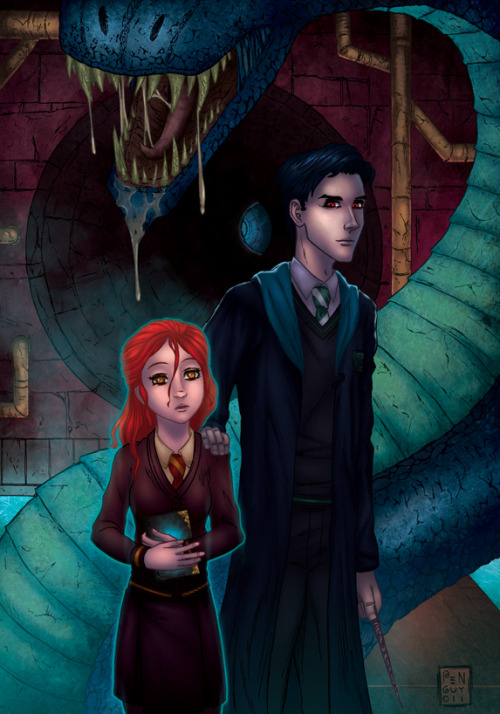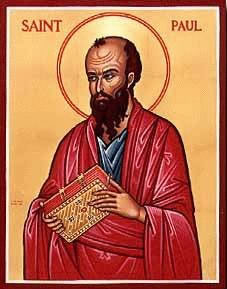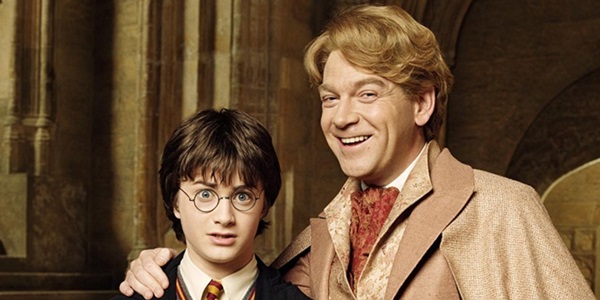Warning: None of the pictures in this post are of my own creation so I do not take any credit for them (I just worry sometimes might complain). Also, in case this is an issue, spoilers on the books and movies ahead.
In the midst of writing my Harry Potter-Christianity series, I have been kinda getting reobsessed with Harry Potter (I go through weekly obsessions often). I have been diving into the books and watching all the movies for the fifteenth time. As I watch the movies, I can't help but feel like there is a lot missing in those onscreen moments that were part of the book.
It got me to thinking that it would be nice to have a reboot of the Harry Potter movies that included those missing pieces from the book, and I understand why they are missing from the current movies because it's tough to fit so much source material into a single 2.5 movie. However, I got to thinking, rather than rebooting the movies (which would probably have to wait a few decades anyway) and creating a dozen movies to fit all the material in, a TV series would work much better. And not just any kind of TV series, but an animated series (that's right, I'm suggesting a Harry Potter cartoon). I'm talking at the scale of Dragon Ball Z epicness.
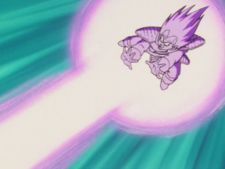 |
| Expelliarmus! |
Now, before you automatically dismiss this idea, here are my reasons for why I think a Harry Potter animated series can work and is a brilliant idea.
Built-In Fanbase
It's been 7 years since the last Harry Potter book was published and 4 years since the last Harry Potter movie was released. And still, people are crazy obsessed with the series. People watch Harry Potter marathons all weekend on ABC Family, they join Pottermore to try to live the life of a Hogwarts student, Harry Potter themed amusement parks are being built or added upon, and J.K. Rowling is still releasing Harry Potter related snippets of writing.
My point is that, Harry Potter mania is still going strong and will continue going strong for a long time. Production companies have millions of fans that they can reach to in order to get viewers and major support for something like a TV series (imagine people obsessively watching a Harry Potter TV show on Netflix like they do
Breaking Bad).
Built-In Incentive for Quality
If a company (say Disney) bought the rights to Harry Potter to make an animated series, they are in a sense buying the rights to be able to create at least seven seasons of a immensely, gigantically, hugely profitable show. However, if they screw it up from the get-go by using low-quality animation or not following the books or creating their own storylines within the Harry Potter universe, then the fans are going to shut off and the series ends at just the first or second book. Therefore, if a company wanted to make a Gringotts bankful of Galleons from an HP series, they better satisfy fans and bring high quality from the very start.
Unified Vision and Direction
One of the things that irked me about the Harry Potter movies (which I generally enjoy overall) is that there was a serious shift in appearance and aesthetic between the films, most notably between the second and third movie (a covered bridge was added, Hagrid's Hut was moved, etc.). This was due to a change in directors, each with their own vision and approach to the movie they were particularly working on.
With an animated series, a single company with the same producers, director, and other creators can be used to bring each book to life with a single aesthetic approach. This way, there are not any funky changes to the layout of Hogwarts or the looks of the characters in the series.
Opportunity to be Thematic
One of the things I enjoyed about David Yates' Harry Potter movies (he directed from
Order of the Phoenix all the way to
Deathly Hallows Part 2) is that each movie seemed devoted to a particular theme. At least, I myself noticed a theme in each movie that was interconnected as part of Harry's overall journey. In
Order of the Phoenix, the theme was focused on Truth and Loyalty.
Half Blood Prince examined Masculinity and variations of it. Finally, both parts of
Deathly Hallows, while more directly linked to the literature source material, saw Harry utilizing what he had learned about these themes in the previous two movies to help him complete his journey into manhood. Again, this is what I got out of the movies.
The point is that a TV series has an opportunity each season to focus on different themes and ideas. Whether it's things like gossip or bravery or morality, each season can examine a particular idea that is found in the Harry Potter books without overtly beating the audience over the head with the message. Each book already has great material for different themes.
Reboot Whole Series without a New Cast
The movies are almost classic now. It's hard to read the books and not picture Alan Rickman as Severus Snape or Rupert Grint as Ron Weasley. Each of the main cast and majority of the supporting actors are now the real life connections to the Harry Potter series. It would take a few decades for a reboot movie series to happen and not have people throw riots about who the new Harry is or which guy replaced Dumbledore this time.
In an animated series, we do not have to worry about casting the right-looking actor or using make-up to make a person look exactly like their literature counterpart. All one has to do is draw the characters as they are described in the book, with references to the illustrations in the books as well as any previous fan art of Harry, Ron, Hermoine, and the gang. Then, we can get professional voice actors to come in and provide their dulcet tones to the series.
Cameo Appearance Opportunities
It would be almost too much to ask for original cast members to provide the voices of the characters they played, especially since many of these actors have busy careers in other movies and stage plays, or the fact that the now young adult actors cannot provide the same voices they had for their characters when they were 11 or 12. However, how cool would it be to have a familiar voice connected to the movie to be heard from one of the characters in an animated series?
Imagine Ian Hart or Kenneth Branagh doing dialogue for their roles as Professor Quirrell and Professor Lockhart respectively. They could do these voices since these characters would last only a season and do not take up majority of the story. Perhaps Daniel Radcliffe could do the voice of James Potter or Tom Felton could voice Tom Riddle or Rupert Grint could do the voice of the older Weasley brothers (Charlie or Bill).
Magic and Animation
We all know from Disney movies and other nostalgic classics that animated stories can be magical. A huge part of my childhood was watching good quality cartoons that I was addicted to. In the same way, Harry Potter could be a weekly animated series that attracts kids as well as adults. Plus, think of how different and easier it would be to draw spells and transformations rather than having it created by computer programs. Just imagine if Harry Potter were a high quality anime and all of the cool designs that could be done with the spellwork.
 |
| Stupefy! |
Books=Seasons or Episodes=Chapters
It's common sense that you can spend more time telling a story through a TV series than in a movie. With an entire season of 13ish episodes, each nearly half an hour long, one can pace the story better and include more details than a 2-3 hour long movie can. With the Harry Potter series, there is a lot of story to tell; however, the books make it very easy to break the story into seasons and episodes of a TV show. Each season can be focused on one of the books (perhaps some of the longer books can be divided into two seasons) and each episode can be based on one or two of the chapters from the book.
Chance to Include Stuff Missing From Movies
This is probably the biggest reason why I would like to see a different version of Harry Potter, having the chance to have a visual representation of moments in the book that are missing from the books.
Harry Potter and the Sorcerer's Stone
-Potions Challenge: In the book, after Ron sacrifices himself to win the game of chess, Harry and Hermoine get trapped in a room where the doorways are blocked by fire and there's multiple potions on the table and Hermoine solves a riddle in order to help Harry get to the Sorcerer's Stone.
Harry Potter and the Prisoner of Azkaban
-Full True History of Sirius and Pettigrew: There's a large part of the chapter when we first meet Sirius Black that is devoted to explaining the true story of what happened when Black tracked down Peter Pettigrew twelve years ago. Remember, Sirius Black is a notorious mass murderer right? That's what they call him in the movie and the book. But, in the movie, all they say is that Black destroyed Pettigrew, and that's it. What about those thirteen Muggles that were killed on the scene as well. And how did Pettigrew escape from Sirius Black when he's supposed to be dead?
Harry Potter and the Goblet of Fire
-Weasleys Visit Dursleys: Near the beginning of the book, Harry leaves the Dursleys' home when the Weasley family comes to retrieve him. This is a hilarious scene and is a great way to introduce the soon to be popular Weasley's Wizard Wheezes.
-Meeting Charlie and Bill Weasley: We are never meet Charlie in the movies, and we do not see Bill in the movies until
Deathly Hallows even though he has some important moments during the last three books.
-Quidditch World Cup!: I know we get the intro and a bit of flying on broomsticks and I know it would have been expensive to create, but just a few minutes of the biggest sporting event in the wizarding world would have been much appreciated. Maybe we could see a couple of goals or Viktor Krum performing the Wronski Feint.
-Ludo Bagman/ Fred and George: While Bagman may not be important to Harry's story specifically, he was a fun character to read about and adds some humor to an otherwise dark storyline. Also, Fred and George's involvement with Bagman is a nice little mystery throughout the story. And in the end, it's important because Harry's prize money for winning the Triwizard Tournament is important for Fred and George opening their joke shop. Without having bet Bagman, Fred and George would not have gotten to the financial situation where Harry would have felt like giving them a bag full of money.
-Crazier Third Task: I feel like the start of the third task actually slows down the movie. How awesome would it be to see a Blast-End Skrewt wrecking havoc through the maze or have Harry come across the sphinx?
-Insane Mr. Crouch: There's a very creepy scene in the book where Harry and Krum find Mr. Crouch, who has been driven insane. An anime could especially capture the atmosphere of this scene, which may be a minor part of the book, but is something that I think really adds to the mystery and thrill of the story.
-Dumbledore vs. Fudge: At the end of the fourth book, while Harry is recovering in the hospital wing, Dumbledore and the Minister of Magic kind of have a falling out. In this scene, we see the start of the division between Harry and the Ministry as well as see some of Dumbledore's brilliant strategic mind as he gets people moving into place to prepare for the fallout of Voldemort's return and the reformation of the Order of the Phoenix.
Order of the Phoenix
-Meeting Mundungus Fletcher: While this is a small supporting character, he has important moments in this story throughout the last three books and it is in this book that we are introduced to him, rather than the movie's introduction in
Deathly Hallows.
-Department of Mysteries: There are many different levels of weird and crazy things going on in this department. Revolving rooms, Time Turners, Flying Brains. The battle in the Department of Mysteries is long and intense, going through various and mysterious moments of magic that would be great to see in a visual medium.
-More of the D.A.: There could be episodes devoted to D.A. meetings, the spells they learn, and the other things that they do in the Room of Requirement. Rather than just having a quick couple of montages of D.A. meetings, episodes can take time showing us the progress of the students involved.
-
Snape vs. James Memory: In the movie, we get a brief glimpse of Snape's memory of being bullied by James Potter after his O.W.Ls. However, there is a lot more detail that we missed out on what the teenage version of Harry's dad and his friends were like and causes internal conflict within Harry. This also inspires him to break into Umbridge's Office to talk to Sirius and Remus, which is also a cool scene we missed out on.
The Half Blood Prince
-Scrimgeour and the Prime Minister: It is rare to see wizards and Muggles interacting outside of Hogwarts. Not only does this opening to the book introduce us to Scrimgeour (who plays a somewhat menacing and important role), but it's also a way for the wizarding world to interconnect with the real world of England.
-Dumbledore and the Dursleys: Another great invasion of wizards into the Dursley home is when Dumbledore comes to take Harry away early in the summer. It is a moment of hilarity but it is also a cool moment of Dumbledore putting the Dursleys in their place.
-The Book Version of Slughorn: I have nothing against Jim Broadbent and his portrayal of Slughorn in the movie. However, he is not what I imagine when I read the book version of Slughorn. I imagined a fatter man with a fantastic and thick mustache, with the personality and voice of pompous British nobility. I almost imagine something similar to the Walrus or the Dodo from Disney's
Alice in Wonderland
-The Voldemort Memories: How cool would it be to see all of the moments in the House of Gaunt? Or young adult Voldemort returning to Hogwarts? There are multiple memories that Harry and Dumbledore visit in the Pensieve that we do not see in the movie.
-The Battle at Hogwarts: After Harry and Dumbledore return from their search for the Horcrux, a battle within the Hogwarts castle ensues between the team-up of the Order of the Phoenix and Dumbledore's Army versus the Death Eaters. It would be a cool moment to animate and add a level of suspense to the climax of the storyline.
So, yeah. I think it would be a great idea to animate the Harry Potter story and turn it into a cartoon series. It could be even more awesome and epic than Dragon Ball Z was for guys in the 90s.
 |
| Expecto Patronum! |








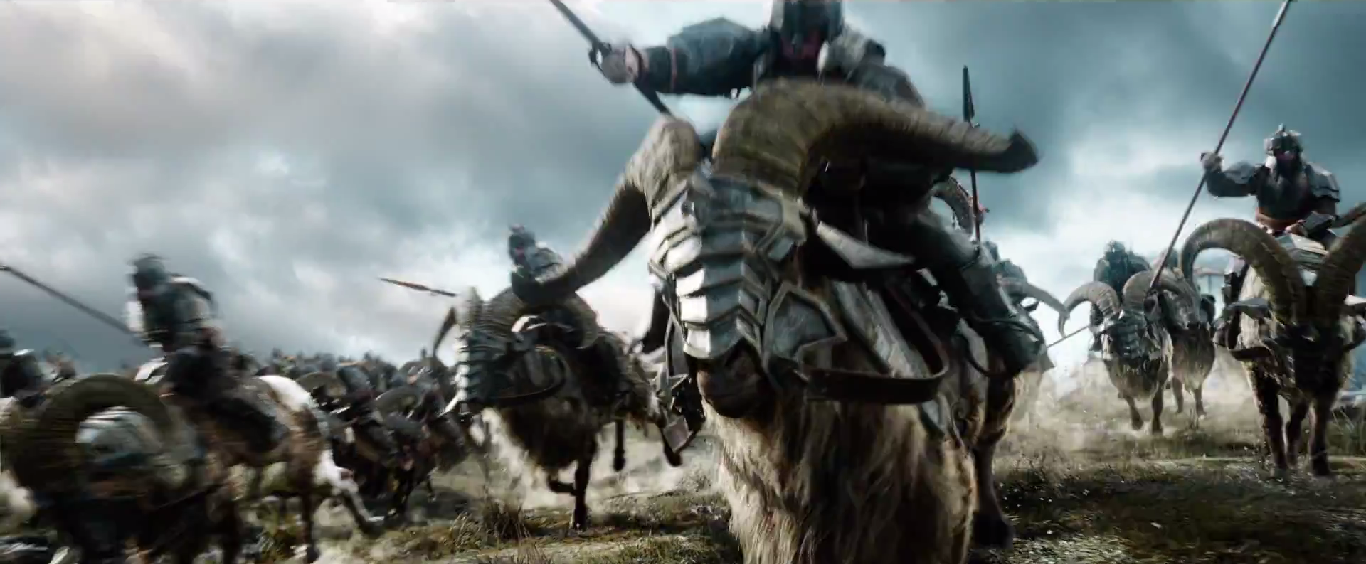
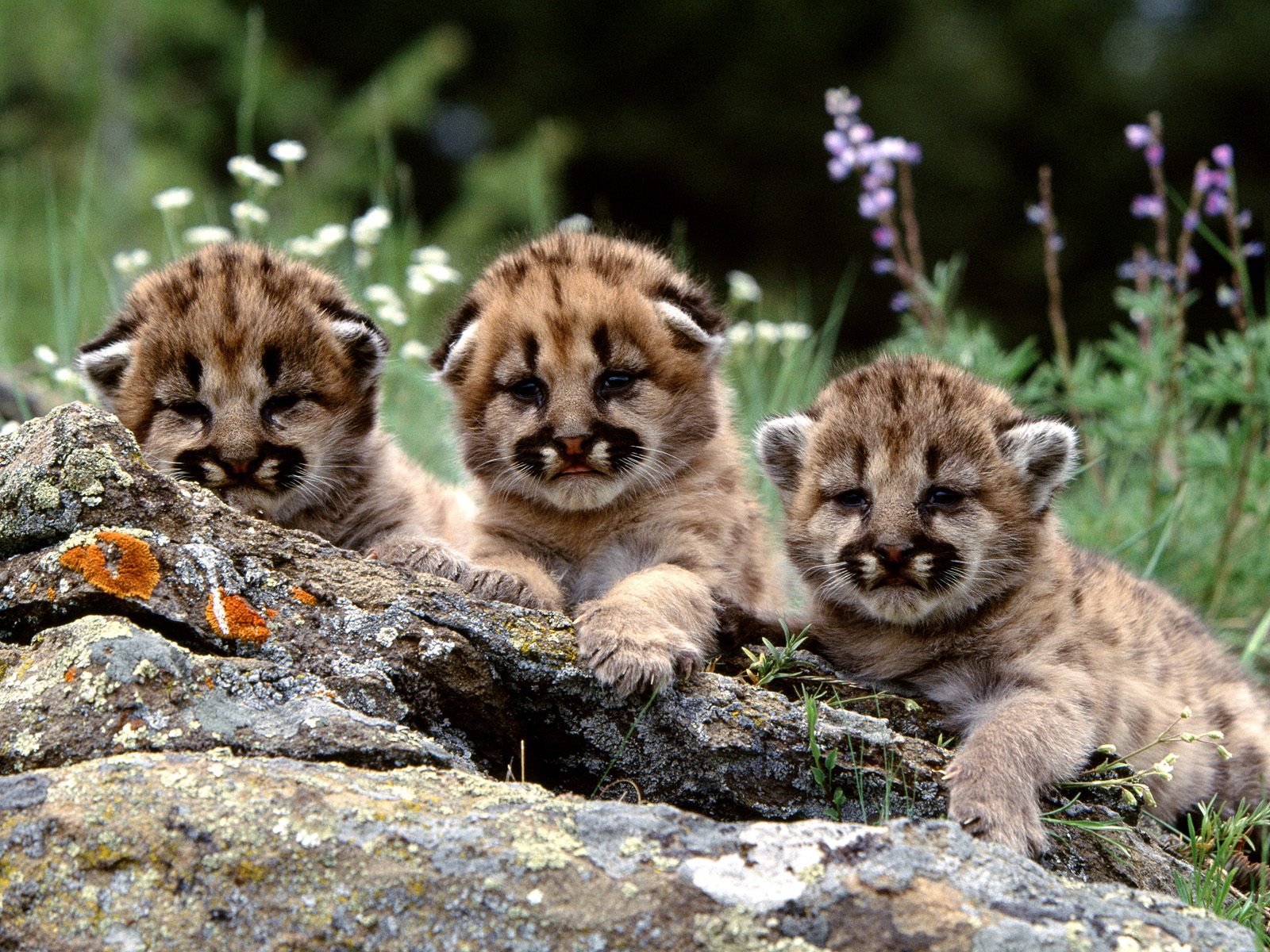






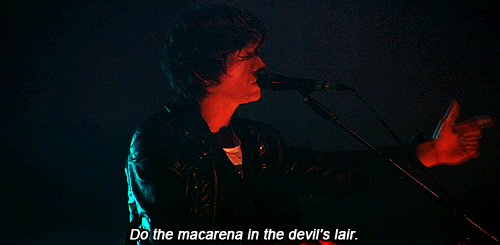




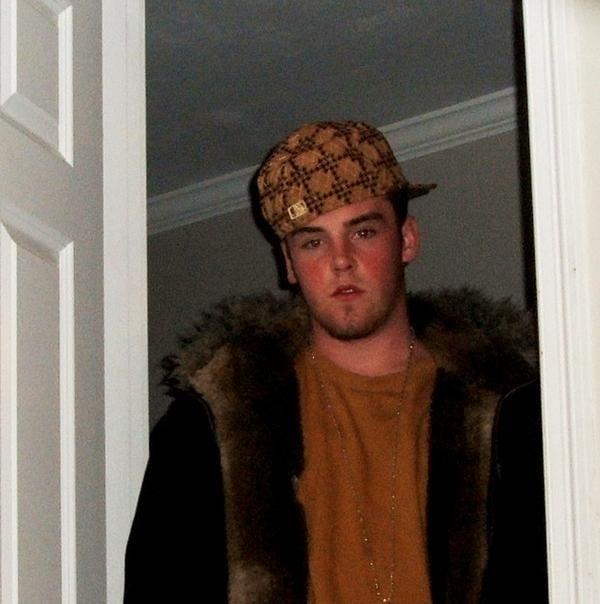

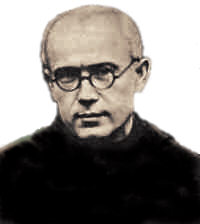



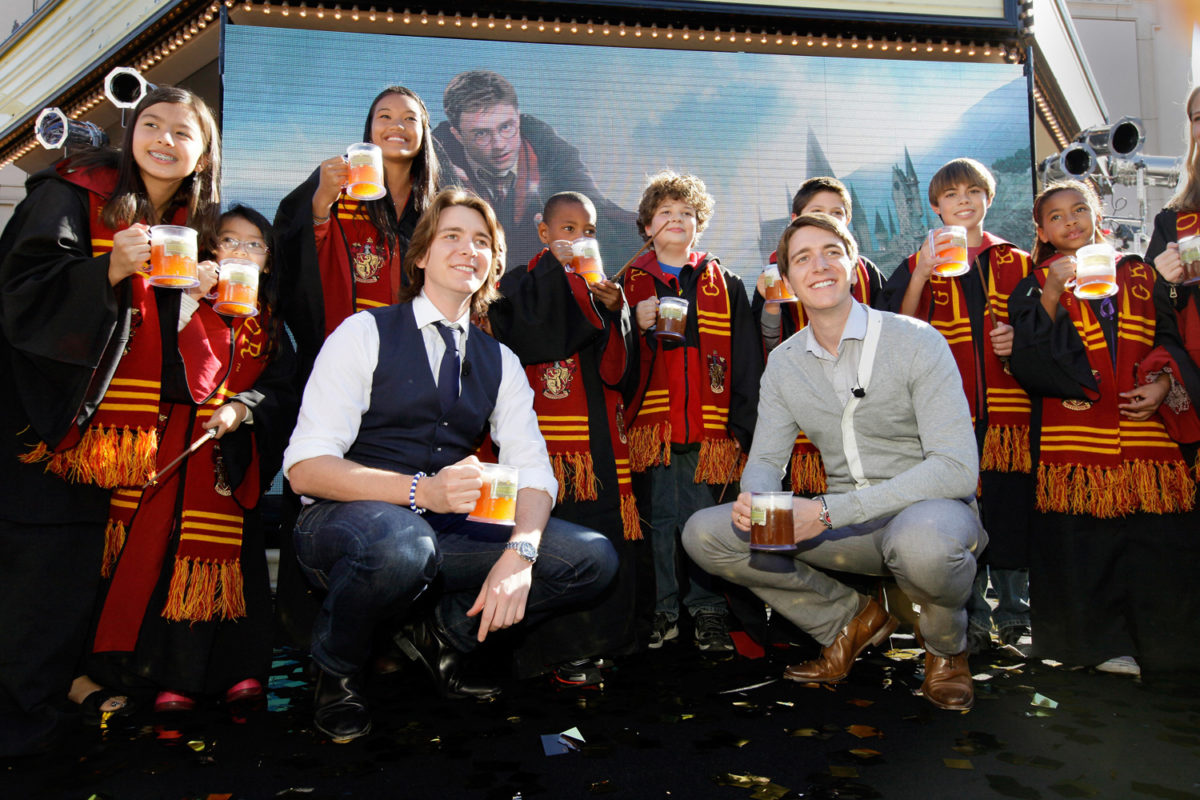
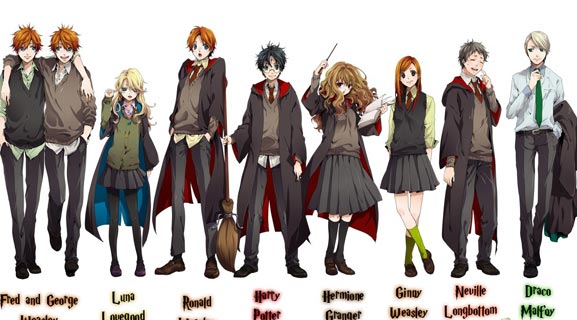






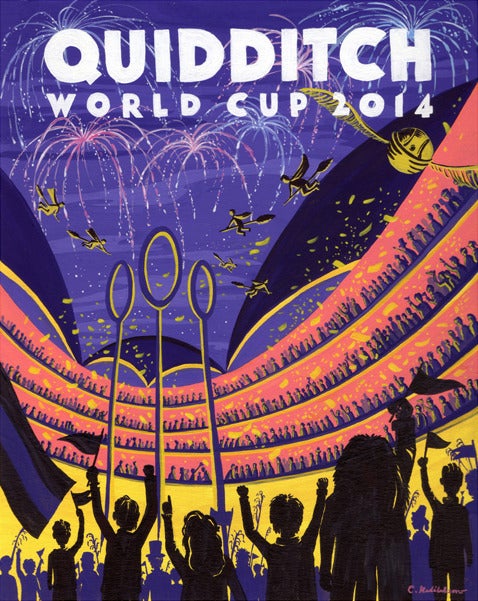




.jpg)

